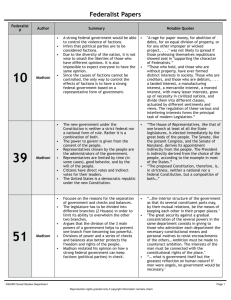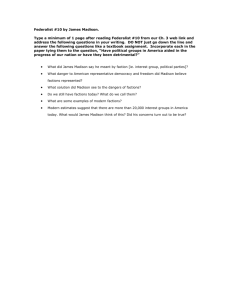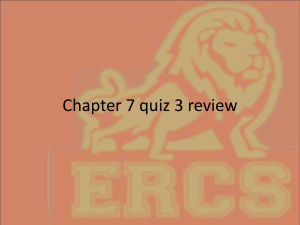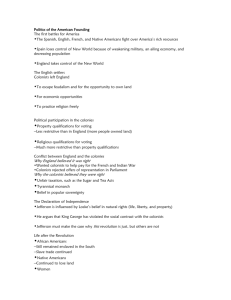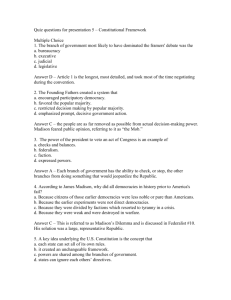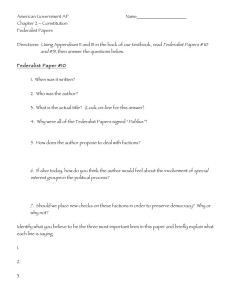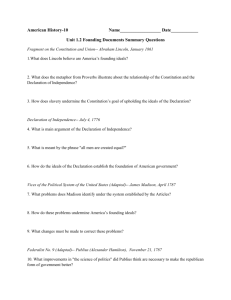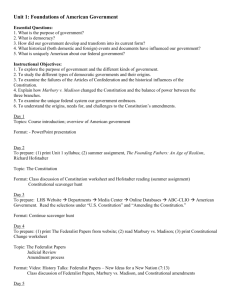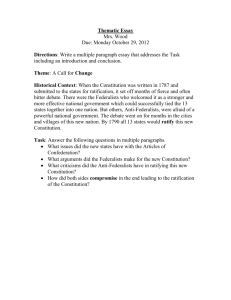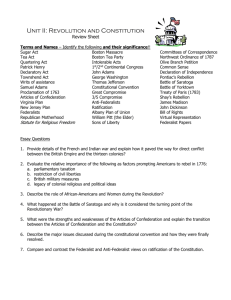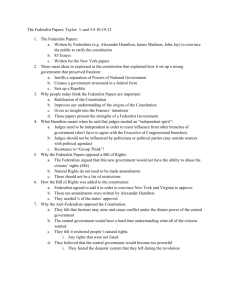USING APPARTS TO ANALYZE Federalist 10
advertisement
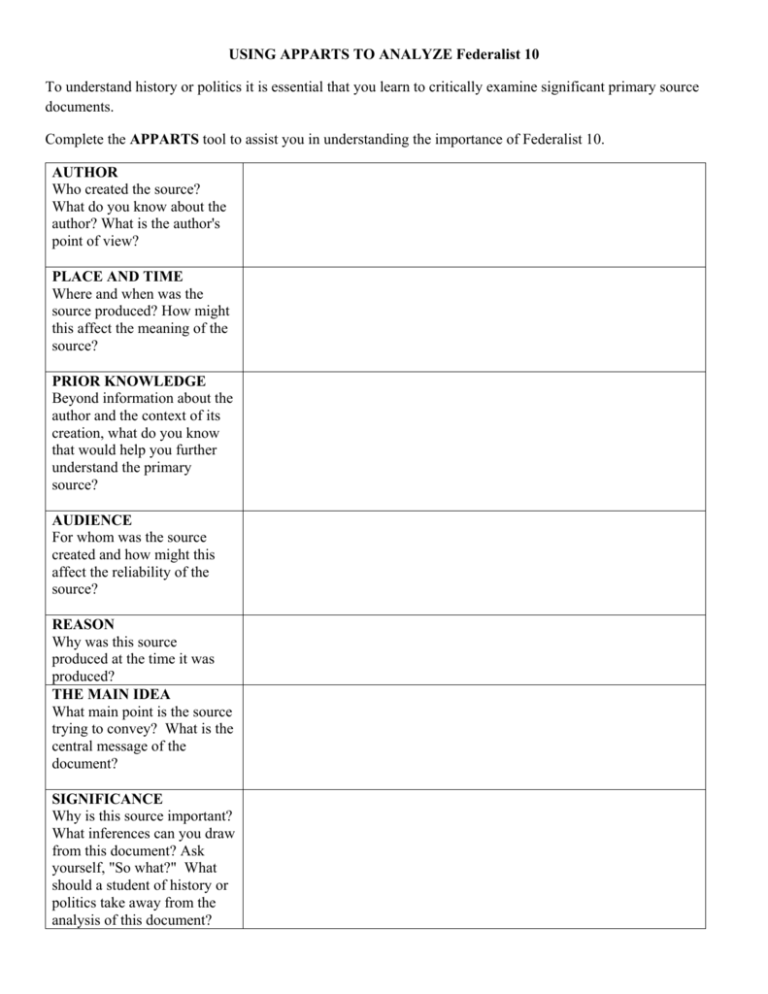
USING APPARTS TO ANALYZE Federalist 10 To understand history or politics it is essential that you learn to critically examine significant primary source documents. Complete the APPARTS tool to assist you in understanding the importance of Federalist 10. AUTHOR Who created the source? What do you know about the author? What is the author's point of view? PLACE AND TIME Where and when was the source produced? How might this affect the meaning of the source? PRIOR KNOWLEDGE Beyond information about the author and the context of its creation, what do you know that would help you further understand the primary source? AUDIENCE For whom was the source created and how might this affect the reliability of the source? REASON Why was this source produced at the time it was produced? THE MAIN IDEA What main point is the source trying to convey? What is the central message of the document? SIGNIFICANCE Why is this source important? What inferences can you draw from this document? Ask yourself, "So what?" What should a student of history or politics take away from the analysis of this document? Federalist 10 APPARTS Suggested Answer Key USING APPARTS TO ANALYZE Federalist 10 Suggested Answer Key AUTHOR Who created the source? What do you know about the author? What is the author's point of view? Publius (James Madison) James Madison supported the Constitution. Madison addresses the question of how to guard against "factions," or groups of citizens, with interests that are contrary to the rights of others or the interests of the community as a whole. He believes that the republic form of government will ensure that the multiplicity of interest in this country is protected. PLACE AND TIME Where and when was the source produced? How might this affect the meaning of the source? Federalist 10 is one of 85 essays advocating for the ratification of the United States Constitution. It was published on November 22, 1787 under the pseudonym Publius. Its purpose was to support the ratification of the Constitution and to respond to the Anti-federalist papers, those not in favor of the ratification of the Constitution. PRIOR KNOWLEDGE Beyond information about the author and the context of its creation, what do you know that would help you further understand the primary source? AUDIENCE For whom was the source created and how might this affect the reliability of the source? REASON Why was this source produced at the time it was produced? Madison raised the issue of factions in both his Vices and in his June 6th speech during the Constitutional Convention speech of 1787. Following the Constitutional Convention and the push for ratification, an "out-ofdoors" debate raged in newspapers and pamphlets throughout America's thirteen states. Federalist 10 appeared in one or more of the following four New York newspapers: The New York Journal, Independent Journal, New York Advertiser, and Daily Advertiser. They were from the point of view of Madison. Madison was targeting the electorate of America and the electorate of the New York ratifying convention. The Federalist Papers were in response to the Antifederalist attacks on the Constitution that were flooding the New York newspapers right after the Constitution had been signed in Philadelphia on September 17, 1787 during the Constitutional Convention. Now the Constitution was sent to states to be ratified through state conventions. Factions are inevitable. The most important source of faction is the THE MAIN IDEA What main point is the source unequal distribution of property. Madison believed that the republic form trying to convey? What is the of government would be successful due to the vast size of the country. central message of the The multiplicity of economic, social, geographical, religious and sectional document? interest would check each other and ensure that the public good would be maintained. This document illustrates the deep thoughts of the Framers as they crafted SIGNIFICANCE Why is this source important? the Constitution. Madison was an advocate of the Constitution, based on What inferences can you draw his personal experiences in public life and his personal knowledge of the from this document? Ask conditions of the country in 1787. But he also considered the experiences yourself, "So what?" What of men in other times and ages. Madison believed that liberty and the should a student of history or public good were the most important pillars of the Constitution and politics take away from the should be protected. Factions must exist to have freedom/liberty but must analysis of this document? be controlled. They can be controlled by enlarging the orbit or having a republic. In a pure democracy, there is no filtration system.

